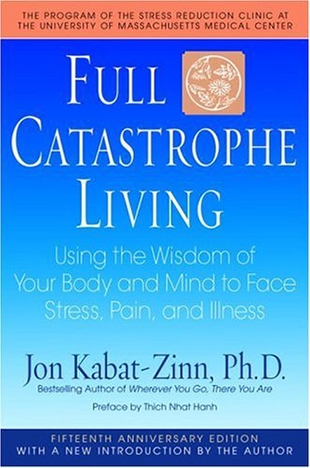"I keep coming back to one line from the movie of Nikos Kazantzakis's novel Zorba the Greek. Zorba's young companion turns to him at a certain point and inquires, 'Zorba, have you ever been married?' to which Zorba replies (paraphrasing somewhat) 'Am I not a man? Of course I've been married. Wife, house, kids, everything . . . the full catastrophe!'
"It was not meant to be a lament, nor does it mean that being married or having children is a catastrophe. Zorba's response embodies a supreme appreciation for the richness of life and the inevitability of all its dilemmas, sorrows, tragedies and ironies. His way is to 'dance' in the gale of the full catastrophe, to celebrate life, to laugh with it and at himself, even in the face of personal failure and defeat. In doing so, he is never weighed down for long, never ultimately defeated either by the world or by his own considerable folly.
"Anybody who knows the book can imagine that living with Zorba must in itself have been quite the 'full catastrophe' for his wife and children. As so often is the case, the public hero that others admire can leave quite a trail of private hurt in his wake. Yet ever since I first heard it, I have felt that the phrase 'the full catastrophe' captures something positive about the human spirit's ability to come to grips with what is most difficult in life and to find within it room to grow in strength and wisdom. For me, facing the full catastrophe means finding and coming to terms with what is most human in ourselves. There is not one person on the planet who does not have his or her own version of the full catastrophe.
"Catastrophe here does not mean disaster. Rather it means the poignant enormity of our life experience. It includes crises and disaster but also all the little things that go wrong and that add up. The phrase reminds us that life is always in flux, that everything we think is permanent is actually only temporary and constantly changing. This includes our ideas, our opinions, our relationships, our jobs, our possessions, our creations, our bodies, everything.”
